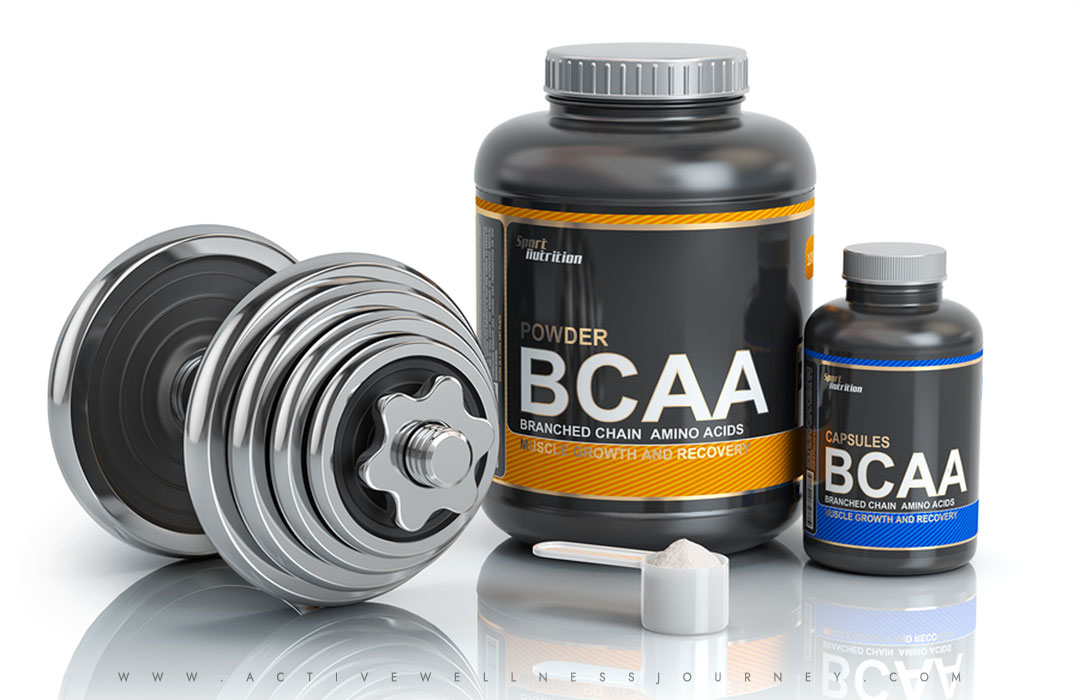Introduction:
Do amino acid supplements work? This question has been a topic of discussion among fitness enthusiasts and athletes for a long time. With the rise in popularity of fitness supplements, it’s crucial to understand the effectiveness of different products. In this article, we will delve into the world of BCAAs (Branched-Chain Amino Acids) and analyze whether amino acid supplements genuinely deliver on their promises. Whether you’re a professional athlete or an occasional gym-goer, this comprehensive guide will provide valuable insights. Let’s explore the science behind BCAAs, their benefits, and their potential side effects.
What are BCAAs?
BCAAs, or Branched-Chain Amino Acids, refer to a group of essential amino acids that include leucine, isoleucine, and valine. These amino acids are crucial in protein synthesis, muscle growth, and exercise recovery. Unlike other amino acids, BCAAs are metabolized directly in the muscle tissue instead of the liver, making them readily available for energy production during workouts.
The Importance of Amino Acids in the Body
Amino acids are the building blocks of proteins and are essential for various biological processes in the body. There are nine essential amino acids that the body cannot produce on its own, and must be obtained through diet or supplementation. These amino acids are crucial for muscle repair, hormone synthesis, immune function, and energy production.
How Do BCAAs Work?
BCAAs work by stimulating protein synthesis and inhibiting protein breakdown in the muscles. Leucine, in particular, activates an essential pathway called the mammalian target of rapamycin (mTOR), which plays a significant role in muscle growth. BCAAs provide your body with ample essential amino acids, ensuring optimal muscle recovery and growth.
Benefits of BCAA Supplements
BCAA supplements offer a range of benefits that can support your fitness goals and overall well-being. Let’s dive into the specific advantages of incorporating BCAA supplementation into your routine:
Muscle Recovery and Repair
BCAA supplements’ primary benefits are their ability to enhance muscle recovery and repair. During intense exercise, your muscles undergo micro-tears, which must be repaired for muscle growth and strength development. BCAAs, especially leucine, stimulate protein synthesis, the process responsible for building and repairing muscle tissue. By increasing protein synthesis, BCAAs help speed up recovery, allowing you to bounce back faster from intense workouts.
Reduced Muscle Soreness
Delayed onset muscle soreness (DOMS) is a common side effect of strenuous exercise. BCAAs have been shown to alleviate muscle soreness and reduce the perceived intensity of DOMS. BCAA supplementation can help minimize post-workout discomfort by mitigating muscle damage and inflammation, keeping you consistent with your training program.
Increased Muscle Growth
BCAAs, particularly leucine, play a vital role in promoting muscle growth. Leucine acts as a catalyst in the activation of mTOR (mammalian target of rapamycin), a critical signaling pathway that regulates muscle protein synthesis. By triggering mTOR, BCAAs stimulate the production of new muscle proteins, leading to increased muscle mass over time. Incorporating BCAA supplements into your diet can support muscle-building efforts, especially with regular resistance training.
Enhanced Endurance Performance
BCAAs can also benefit endurance athletes by providing additional energy during prolonged exercise. As your glycogen stores become depleted during long-duration activities, such as distance running or cycling, BCAAs can be oxidized by the muscles to generate energy. This can help delay fatigue and improve endurance performance, allowing you to sustain your effort for extended periods.
Reduced Muscle Wasting
During calorie restriction or intense training periods, your body may enter a catabolic state where muscle breakdown exceeds muscle synthesis. BCAAs have been shown to counteract muscle wasting by suppressing protein breakdown. By preserving lean muscle mass, BCAAs help maintain a favorable muscle-to-fat ratio, essential for both athletic performance and body composition goals.
Improved Immune Function
BCAAs play a vital role in supporting immune function. Intense exercise can temporarily suppress immune activity, making athletes more susceptible to infections and illnesses. BCAA supplementation has been found to enhance immune cell function and reduce the risk of upper respiratory tract infections, particularly during high training loads or intense competition. BCAAs can help athletes stay healthy and perform at their best by supporting a robust immune system.
Incorporating BCAA supplements into your fitness routine can provide these valuable benefits, aiding in muscle recovery, reducing muscle soreness, promoting muscle growth, enhancing endurance performance, preventing muscle wasting, and supporting immune function.
Remember, while BCAA supplementation can be beneficial, it’s important to prioritize a well-rounded diet and appropriate training regimen. Consult with a healthcare professional or a registered dietitian to determine the optimal dosage and ensure it aligns with your specific needs and goals.
Do Amino Acid Supplements Work for Muscle Growth?
Yes, amino acid supplements, particularly BCAAs, have been shown to promote muscle growth and repair. Leucine, one of the essential amino acids in BCAAs, plays a vital role in activating muscle protein synthesis. Studies have demonstrated that consuming BCAAs before or after resistance training can lead to more significant gains in lean muscle mass compared to a placebo.
BCAAs for Fat Loss: Myth or Reality?
While BCAAs are not primarily marketed as fat loss supplements, they can indirectly support weight loss efforts. By preserving lean muscle mass during calorie restriction, BCAAs help maintain a higher metabolic rate. Additionally, BCAAs may reduce fatigue during workouts, allowing you to push harder and burn more calories.
BCAAs and Exercise Performance
BCAA supplementation has shown promise in enhancing exercise performance. By reducing fatigue and preserving glycogen stores, BCAAs can delay the onset of exercise-induced fatigue, allowing you to train at a higher intensity for a more extended period. However, it’s important to note that individual responses may vary, and the impact of BCAAs on exercise performance may be influenced by factors such as training status, diet, and overall nutrition.
BCAA Dosage and Timing
The optimal dosage of BCAAs depends on various factors, including body weight, training intensity, and fitness goals. As a general guideline, a recommended dosage of 5-10 grams of BCAAs before or after a workout is commonly used to promote muscle recovery and growth. However, consulting with a healthcare professional or a registered dietitian is advised to determine the appropriate dosage based on individual needs.
Are There Any Side Effects of BCAA Supplements?
BCAA supplements are generally safe for most people when consumed within the recommended dosage. However, some individuals may experience minor side effects such as nausea, bloating, or diarrhea. It’s crucial to follow the manufacturer’s instructions and consult a healthcare professional if you have any underlying medical conditions or are taking medications that may interact with BCAA supplements.
BCAAs vs. Other Amino Acid Supplements
While BCAAs offer specific benefits, it’s also important to consider other amino acids. Essential amino acid (EAA) supplements provide all nine essential amino acids, including the BCAAs. EAA supplements have been shown to have superior effects on muscle protein synthesis compared to BCAAs alone. If you’re looking for comprehensive amino acid support, EAA supplements may be a better option.
FAQs about BCAA Supplements
-
What Are BCAAs?
BCAAs, or Branched-Chain Amino Acids, are a group of essential amino acids that include leucine, isoleucine, and valine. They play a vital role in muscle growth and repair.
-
Are BCAAs Safe To Consume?
Yes, BCAAs are generally safe for consumption when taken within the recommended dosage. However, you must consult a healthcare professional for any underlying medical conditions.
-
Can BCAAs Help With Muscle Recovery?
Yes, BCAAs can aid muscle recovery by stimulating protein synthesis and reducing muscle damage and soreness after intense workouts.
-
Should I Take BCAAs Before Or After A Workout?
Both timing options can be effective. Consuming BCAAs before a workout provides readily available energy while taking them after a workout supports muscle recovery and growth.
-
Can Both Men And Women Take BCAAs?
Yes, BCAAs can be consumed by both men and women to support their fitness goals. The benefits of BCAA supplementation are not gender-specific.
-
Are There Any Food Sources For BCAAs?
Yes, BCAAs are naturally found in protein-rich foods such as meat, poultry, fish, eggs, and dairy products. Including these foods in your diet can provide a natural source of BCAAs.
Conclusion
In conclusion, BCAA supplements can be a practical addition to your fitness regimen. They significantly affect muscle growth, exercise recovery, and performance. However, it’s important to remember that supplements should complement a balanced diet and a well-structured training program. If you’re considering BCAA supplementation, consult a healthcare professional or a registered dietitian to determine the appropriate dosage and ensure it aligns with your needs and goals.




